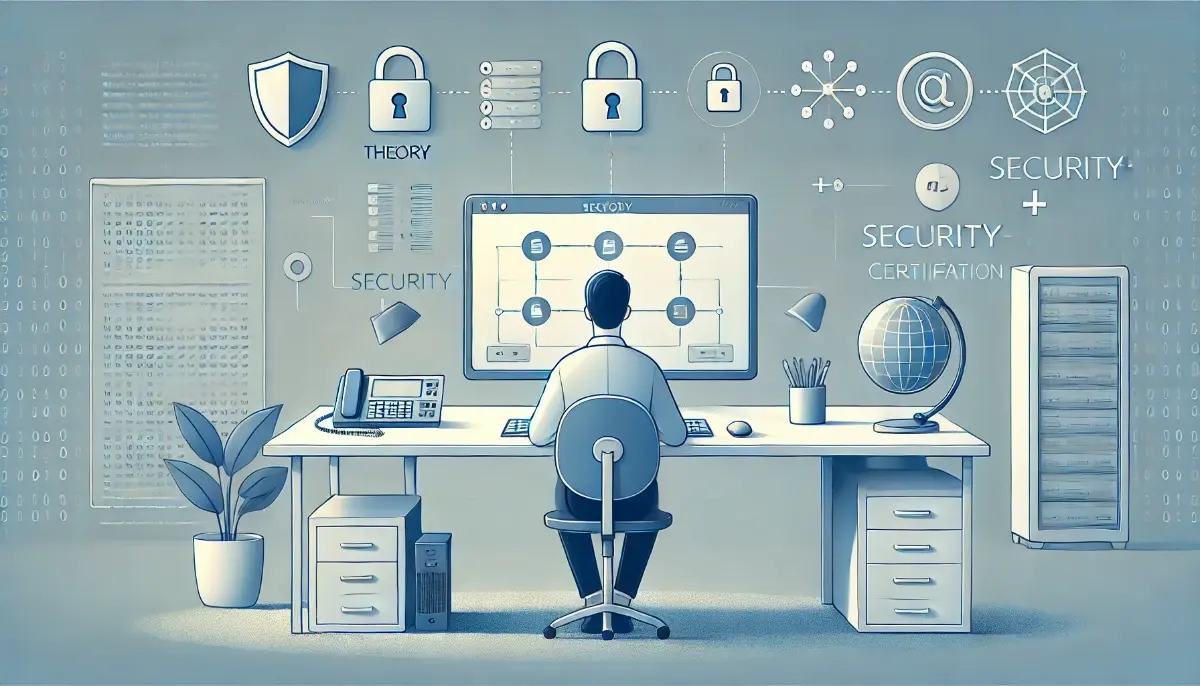Are you an IT pro looking to level up your career? You're not alone. We meet many tech workers who want to grow their skills, gain promotion, and make more money. The good news is that training and certification can help you do just that. In fact, studies show that IT pros with certifications earn 15% more on average than those without. Let's look at how you can use training and certification to give your career a boost.
TrainACE - IT and Cybersecurity Training Blog
Paul Ricketts
Recent Posts
How Can IT Professionals Boost Their Careers Through Training and Certification?
[fa icon="calendar'] Apr 8, 2025 2:18:08 PM / by Paul Ricketts posted in Getting Started in IT
How Can Hands-on Skills Boost Your Security+ Certification Success?
[fa icon="calendar'] Apr 2, 2025 12:04:25 PM / by Paul Ricketts posted in CompTIA, Security+
Top 5 Entry-Level IT Jobs in the DMV Area (and What They Pay)
[fa icon="calendar'] Mar 27, 2025 1:31:47 PM / by Paul Ricketts
If there's one thing we've learned in over twenty years as an IT school, it's that starting a career in IT doesn’t have to mean years of schooling or climbing a corporate ladder with no clear direction. With the right certifications and some hands-on training, you can jump into the field quickly—and into a job that pays well, too.
Whether you’re just finishing school, switching careers, or coming out of the military, the DC, Maryland, and Virginia (DMV) area offers one of the hottest IT job markets in the country. Here's a breakdown of five high-demand entry-level IT roles, what they pay, and how you can get started.
Want to Level Up Your Cybersecurity Career in the DMV Area?
[fa icon="calendar'] Mar 18, 2025 1:42:45 PM / by Paul Ricketts posted in CEH, CISSP, Security+
Looking to boost your IT career in the DMV region? Online cybersecurity certifications might be just what you need. These certifications can help you stand out in a competitive job market and show employers you've got the skills they're looking for. In this article, we'll explore the top online cybersecurity certifications that can help IT professionals in the DC, Maryland, and Virginia area take their careers to the next level in 2025.
Online or In-Person Cybersecurity Bootcamps: Which Fits DMV IT Professionals?
[fa icon="calendar'] Feb 20, 2025 4:42:52 PM / by Paul Ricketts posted in Getting Started in IT
Choosing between self-guided online and in-person cybersecurity bootcamps can be tough for IT pros in the DMV area. Each option has its strengths, and the best fit depends on your learning style, schedule, and career goals. With 60-70% of cybersecurity courses now available online, training is more accessible than ever. But is self-guided online learning the right choice for you? Let's break down the key differences to help you decide.
Certified Ethical Hacker (CEH): Career Benefits & Job Roles
[fa icon="calendar'] Jan 31, 2025 4:13:07 PM / by Paul Ricketts posted in CEH, Cybersecurity, EC-Council
The demand for cybersecurity professionals is at an all-time high, and organizations across industries are looking for skilled ethical hackers like you to protect their systems from cyber threats. One of the most recognized certifications in this field is the Certified Ethical Hacker (CEH), which validates your ability to think like a hacker and identify vulnerabilities before cybercriminals can exploit them.
How Can IT Pros Boost Their Cyber Security Skills in the DMV Area?
[fa icon="calendar'] Jan 15, 2025 1:10:25 PM / by Paul Ricketts posted in Cybersecurity
Are you an IT pro looking to level up your cyber security game? You're in the right place! The DMV area is a hotbed for tech jobs, and having top-notch cybersecurity skills can set you apart. Did you know that the average salary for cyber security pros in the DMV is over $100,000? Let's dive into the must-have skills and how you can get them, whether you're just starting out or looking to climb the career ladder.
Understanding CompTIA SecurityX
[fa icon="calendar'] Jan 8, 2025 11:54:13 AM / by Paul Ricketts posted in CASP+, SecurityX
What is the new SecurityX Certification?
Are you ready to take your place in the cybersecurity field? Introducing CompTIA SecurityX, the newly rebranded certification formerly known as CompTIA Advanced Security Practitioner (CASP+). This isn’t just another certification; it's your ticket to becoming a leading force in cybersecurity! Effective December 17, 2024, SecurityX will replace the current CASP+ (CAS-004).
How Can IT Pros Renew Their Security+ Certification?
[fa icon="calendar'] Dec 12, 2024 3:42:09 PM / by Paul Ricketts posted in CEU, Security+
Keeping your Security+ certification up-to-date is crucial for IT professionals in the DMV area. Renewing this important credential shows employers you're committed to staying current in the fast-changing world of cybersecurity. However, the renewal process can seem confusing at first. Don't worry - this guide will walk you through the steps to renew your Security+ certification smoothly. Did you know that over 600,000 IT pros worldwide hold this certification? Let's explore how you can join them in maintaining this valuable credential.
How Can IT Professionals Finance Their Cybersecurity Bootcamp Training?
[fa icon="calendar'] Nov 26, 2024 1:41:39 PM / by Paul Ricketts posted in Cybersecurity
Are you an IT professional looking to boost your skills with a cybersecurity bootcamp? You're not alone. Many of our students and your fellow tech workers want to level up their careers but worry about the cost. The good news is that there are many ways to pay for your training. This article will cover the main options for funding your cybersecurity education, from scholarships to payment plans. We'll also look at choosing the right program for your needs and budget.
How Can IT Professionals Boost Their Cybersecurity Skills Online?
[fa icon="calendar'] Nov 1, 2024 3:17:51 PM / by Paul Ricketts posted in CISSP, Cybersecurity, Security+
Did you know that cybersecurity jobs are expected to grow by 31% from 2019 to 2029? That's much faster than the average for all jobs. If you're an IT pro looking to up your game in cybersecurity, you're in the right place. Online learning and virtual classes have made it easier than ever to gain new skills and certifications. In this article, we'll explore some top online programs that can help you level up your cybersecurity knowledge and advance your career.
How Can IT Professionals Boost Their Skills with CompTIA Security+ Certification?
[fa icon="calendar'] Oct 17, 2024 4:06:40 PM / by Paul Ricketts posted in CompTIA, Security+
Are you an IT pro looking to level up your career? CompTIA Security+ certification might be just what you need. This globally recognized qualification can open doors to exciting job opportunities and higher salaries. In fact, certified professionals often earn 15% more than their non-certified peers. Let's explore how this certification can help you grow in your IT career and what you need to know to get started.








/Unsplash/rodeo-project-management-software-n9RU5cLZLKY-unsplash-1.jpeg)


